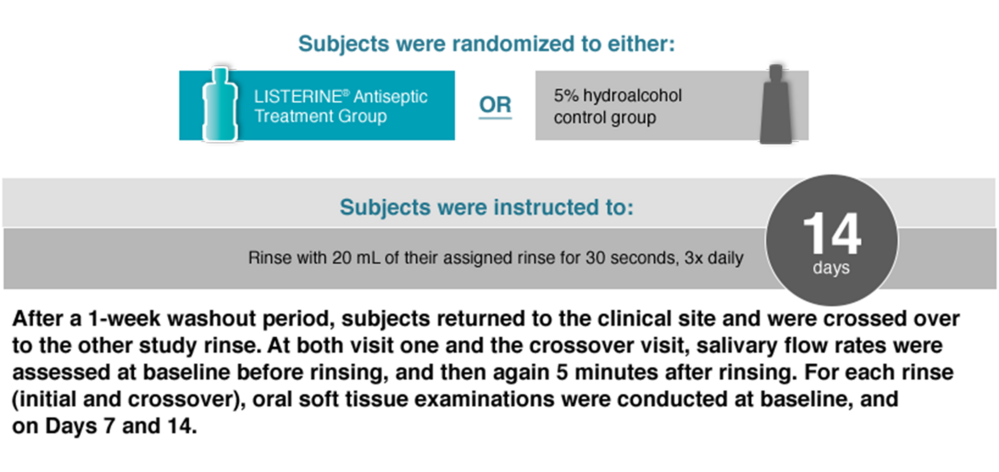Use of Essential Oil-containing Mouthrinses by Xerostomic Individuals: Determination of Potential for Oral Mucosa Irritation1
Objective
Assess the irritation potential of an essential oil-containing mouthrinse (LISTERINE® Antiseptic) in a population with objectively documented xerostomia (hyposalivation) using an exaggerated-exposure clinical model (N=18).
Methodology
Observer-blinded crossover study of subjects (aged ≥18 years) with a history of xerostomia secondary to medication or Sjorgren’s syndrome and an unstimulated salivary flow rate of <0.25 mL/minute.

Results
The oral irritation potential of the essential oil mouthrinse was minimal.
All subjects tolerated the mouthrinses well
With the exception of 2 subjects, none developed oral mucosal lesions during the course of the study that could be attributable to the test rinses
2 subjects had an asymptomatic “whitish slough” of the buccal mucosae after rinsing with the essential oil mouthrinse for 7 days (wiped off readily, leaving a normal appearing, non-erythematous mucosa). In both subjects, the mucosae appeared normal at the 14-day exam
Conclusion
“…these findings suggest that the act of daily rinsing has no negative or deleterious effect in this population.”*
*LISTERINE® Antiseptic is not indicated for use in the treatment of xerostomia.
Reference:
1. Fischman SL, Aguirre A, Charles CH. Use of essential oil-containing mouthrinses by xerostomic individuals: determination of potential for oral mucosa irritation. Am J Dent. 2004;17(1):23-36.
